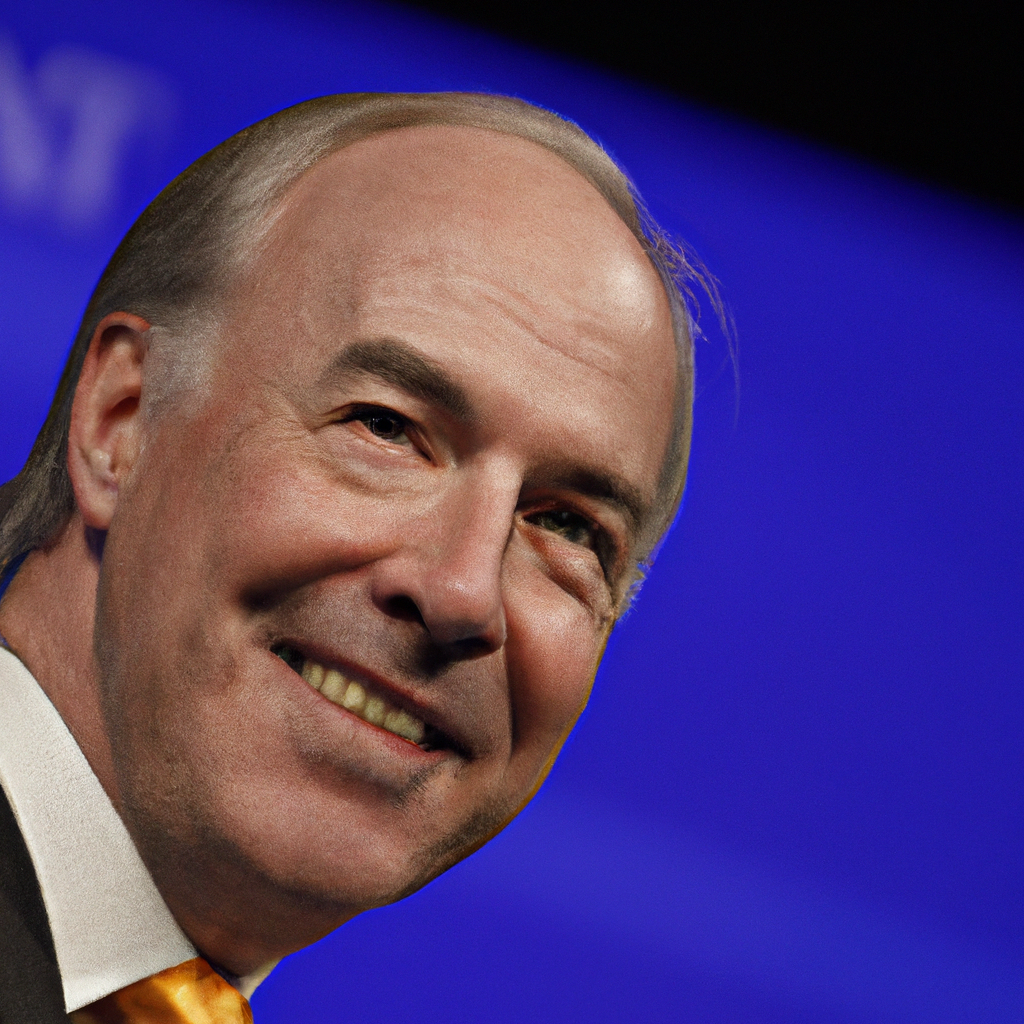Boeing CEO: No Clean-sheet Aircraft This Decade
How Boeing CEO’s Decision to Not Develop a Clean-Sheet Aircraft Will Impact the Aerospace Industry
The decision by Boeing CEO Dave Calhoun to not develop a clean-sheet aircraft will have a significant impact on the aerospace industry. A clean-sheet aircraft is a new aircraft design that is not based on an existing model. This decision will have a ripple effect throughout the industry, as it will affect the production of new aircraft, the development of new technologies, and the availability of jobs.
First, the decision to not develop a clean-sheet aircraft will have an immediate impact on the production of new aircraft. Without a new design, Boeing will be limited to producing existing models, which will limit the number of new aircraft that can be produced. This could lead to a decrease in production and a decrease in revenue for the company.
Second, the decision to not develop a clean-sheet aircraft will also have an impact on the development of new technologies. Without a new design, Boeing will be limited in its ability to develop new technologies that could improve the performance and efficiency of its aircraft. This could lead to a decrease in innovation and a decrease in the competitiveness of the company.
Finally, the decision to not develop a clean-sheet aircraft will also have an impact on the availability of jobs. Without a new design, Boeing will be limited in its ability to hire new employees to work on the development and production of new aircraft. This could lead to a decrease in employment opportunities and a decrease in the number of people employed in the aerospace industry.
Overall, the decision by Boeing CEO Dave Calhoun to not develop a clean-sheet aircraft will have a significant impact on the aerospace industry. This decision will affect the production of new aircraft, the development of new technologies, and the availability of jobs. It is important for the industry to understand the implications of this decision and to take steps to mitigate any potential negative impacts.
Exploring the Reasons Behind Boeing CEO’s Decision to Not Develop a Clean-Sheet Aircraft
The decision by Boeing CEO Dennis Muilenburg not to develop a clean-sheet aircraft has been met with some surprise and confusion. A clean-sheet aircraft is a completely new design, as opposed to an existing model that has been modified or updated. This decision has been made in the face of increasing competition from other aircraft manufacturers, and the need to remain competitive in the industry.
In order to understand the reasons behind this decision, it is important to consider the current state of the aviation industry. The industry is highly competitive, and the cost of developing a new aircraft is significant. This cost includes the cost of research and development, as well as the cost of manufacturing and testing the aircraft. Additionally, the development of a new aircraft requires a significant amount of time, which can be difficult to manage in an industry where time is of the essence.
Furthermore, the development of a new aircraft requires a significant amount of risk. There is no guarantee that the aircraft will be successful, and the cost of failure can be significant. Additionally, the development of a new aircraft requires a significant amount of resources, which can be difficult to manage in an industry where resources are limited.
Finally, the development of a new aircraft requires a significant amount of expertise. This expertise is not always available, and the cost of hiring and training new personnel can be significant. Additionally, the development of a new aircraft requires a significant amount of coordination between different departments, which can be difficult to manage in an industry where coordination is often lacking.
Given these factors, it is understandable why Boeing CEO Dennis Muilenburg has decided not to develop a clean-sheet aircraft. The cost and risk associated with such a project are significant, and the resources and expertise required are often difficult to manage. Additionally, the development of a new aircraft requires a significant amount of time, which can be difficult to manage in an industry where time is of the essence. As such, it is understandable why the decision has been made to focus on existing models and modifications, rather than developing a completely new aircraft.
What the Future Holds for Boeing After the CEO’s Decision to Not Develop a Clean-Sheet Aircraft
The decision by Boeing’s CEO to not develop a clean-sheet aircraft has left many wondering what the future holds for the company. While the decision may have been a difficult one, it is clear that Boeing is now looking to the future and how it can best serve its customers.
In the short-term, Boeing will continue to focus on its existing aircraft and the development of new technologies and services that will improve the performance and safety of its existing fleet. This includes the development of new engines, avionics, and other components that will help to make its aircraft more efficient and reliable. Additionally, Boeing will continue to invest in research and development to ensure that its aircraft remain competitive in the global market.
In the long-term, Boeing will look to expand its portfolio of services and products. This could include the development of new aircraft, such as unmanned aerial vehicles (UAVs) and other advanced aircraft. Additionally, Boeing could look to expand its services to include maintenance and repair services, as well as the development of new technologies that could help to improve the safety and efficiency of its aircraft.
Finally, Boeing will continue to focus on its core competencies, such as its expertise in aerospace engineering and its ability to develop innovative solutions for its customers. This could include the development of new materials and processes that could help to reduce the cost of production and improve the performance of its aircraft.
Overall, the decision by Boeing’s CEO to not develop a clean-sheet aircraft may have been a difficult one, but it is clear that the company is now looking to the future and how it can best serve its customers. With its focus on existing aircraft, new technologies, and services, Boeing is well-positioned to remain a leader in the aerospace industry for years to come.
Analyzing the Impact of Boeing CEO’s Decision to Not Develop a Clean-Sheet Aircraft on the Aerospace Industry
The decision of Boeing CEO, Dennis Muilenburg, to not develop a clean-sheet aircraft has had a significant impact on the aerospace industry. This decision has caused a ripple effect throughout the industry, with many companies and organizations feeling the effects.
First, the decision has caused a decrease in the number of jobs available in the aerospace industry. With the lack of a new aircraft to develop, many companies have had to lay off workers or reduce their workforce. This has had a negative impact on the industry, as it has caused a decrease in the number of skilled workers available to work on existing aircraft.
Second, the decision has caused a decrease in the amount of research and development that is being done in the aerospace industry. Without the development of a new aircraft, there is less incentive for companies to invest in research and development. This has caused a decrease in the amount of innovation and progress being made in the industry.
Third, the decision has caused a decrease in the amount of money being invested in the aerospace industry. Without the development of a new aircraft, investors are less likely to invest in the industry. This has caused a decrease in the amount of capital available to fund research and development, as well as other projects.
Finally, the decision has caused a decrease in the number of new products being released in the aerospace industry. Without the development of a new aircraft, companies are less likely to invest in the development of new products. This has caused a decrease in the number of new products being released, which has had a negative impact on the industry.
Overall, the decision of Boeing CEO, Dennis Muilenburg, to not develop a clean-sheet aircraft has had a significant impact on the aerospace industry. This decision has caused a decrease in the number of jobs available, a decrease in the amount of research and development being done, a decrease in the amount of money being invested, and a decrease in the number of new products being released. These effects have had a negative impact on the industry, and it is likely that the effects will continue to be felt for some time.
Examining the Pros and Cons of Boeing CEO’s Decision to Not Develop a Clean-Sheet Aircraft
Boeing CEO Dennis Muilenburg recently announced that the company will not be developing a clean-sheet aircraft, a decision that has sparked debate among industry experts. While some argue that this decision is a mistake, others believe that it is a wise move. To better understand the implications of this decision, it is important to examine the pros and cons of not developing a clean-sheet aircraft.
One of the primary advantages of not developing a clean-sheet aircraft is that it allows Boeing to focus its resources on improving existing aircraft models. By investing in the development of existing aircraft, Boeing can ensure that its products remain competitive in the market. Additionally, this approach allows Boeing to reduce the risk associated with developing a new aircraft, as the company can rely on existing designs and technologies.
On the other hand, there are some drawbacks to not developing a clean-sheet aircraft. For one, Boeing may miss out on potential opportunities to develop innovative aircraft designs that could give the company a competitive edge. Additionally, not developing a clean-sheet aircraft could limit Boeing’s ability to respond to changing market conditions. Finally, not developing a clean-sheet aircraft could lead to a lack of innovation in the industry, as other companies may be less likely to invest in new aircraft designs if Boeing is not doing so.
Ultimately, the decision to not develop a clean-sheet aircraft is a complex one that requires careful consideration. While there are some advantages to this approach, there are also some potential drawbacks that must be taken into account. It remains to be seen whether this decision will prove to be beneficial for Boeing in the long run.



